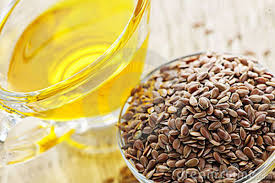- On sale!
- -20%










Our linseed oil help to decrease the rate of cholesterol in the blood. Reduces intestinal inflammation. Help improve the performance of the brain and nerves. Strengthens hair...
Linseed oil is good for the heart because it is the richest source of alpha-linolenic acid.
 Secure payment
Secure payment
You can pay securely
 Quick delivery
Quick delivery
We deliver your order directly after receipt of payment
 Satisfied or refunded
Satisfied or refunded
If you are not completely satisfied with your purchase, simply return for refund
Our linseed oil help to decrease the rate of cholesterol in the blood. Reduces intestinal inflammation. Help improve the performance of the brain and nerves. Strengthens hair...
Linseed oil is the oil extracted from flax seeds. Now, you may be wondering that isn't the oil from flax called flaxseed oil. Yes, that's true. Both flaxseed oil and linseed oil start out from the same source - the flax seeds. However, the processing is quite different which leads to marked differences between these oils. Linseed oil is used for various industrial purposes and paint jobs whereas flaxseed oil is fit for human consumption.

Properties
Linseed oil has some special properties which make it suitable for industrial use.
Drying - Linseed oil dries up slowly, but uniformly. This makes it suitable for use as drying agent in paint formula, wood finish products etc.
Water resistance - this oil keeps the material protected from water. This helps to safeguard metal products from corrosion and furniture from water damage.
Glow - Linseed oil adds glow to wood
Binding agent - Linseed oil binds together ingredients in many products. It creates a rich, smoothy emulsion when all ingredients are mixed with it. This is very helpful.
Linseed oil may lead to a slight yellowing of the product over which it is used, but this diminishes after some time. The intensity of this yellowing varies from product to product, and there may be some where such an effect is not seen at all.
Linseed Oil Benefits and Uses
Specifically, linseed may help to:
Lower cholesterol, protect against heart disease and control high blood pressure:
Several studies indicate that linseed oil, as well as ground linseeds, can lower cholesterol, thereby significantly reducing the risk of heart disease. Taking linseed oil may also protect against angina (chest pain) and high blood pressure. In addition, a five-year study done recently at Boston's Simmons College found that linseed oil may be useful in preventing a second heart attack. It may also help prevent elevated blood pressure by inhibiting inflammatory reactions that cause artery-hardening plaque and poor circulation.
Counter inflammation associated with gout, lupus and fibrocystic breasts:
Omega-3 fatty acids appear to limit the inflammatory reaction associated with these conditions. In cases of lupus, linseed oil not only reduces inflammation in the joints, skin and kidneys, but also lowers cholesterol levels that may be elevated by the disease. Taking linseed oil for gout may lessen the often sudden and severe joint pain or swelling that is a symptom of this condition. In addition, the ability of omega-3 fatty acids to boost the absorption of iodine (a mineral often found in low levels in women suffering from fibrocystic breasts) makes linseed oil potentially valuable for treating this often painful condition.
Control constipation, haemorrhoids, diverticular disorders and gallstones:
As they are high in dietary fibre, ground linseeds can help ease the passage of stools and thus relieve constipation, haemorrhoids and diverticular disease. In those with diverticular disease, linseeds may also keep intestinal pouches free of waste and thus keep potential infection at bay. Taken for inflammatory bowel disease, linseed oil can help to calm inflammation and repair any intestinal tract damage. In addition, the oil may prevent painful gallstones from developing and even dissolve existing stones.
Treat acne, eczema, psoriasis, sunburn and rosacea:
The essential fatty acids in linseed oil are largely responsible for its skin-healing powers. Red, itchy patches of eczema, psoriasis and rosacea often respond to the EFA's anti-inflammatory actions and overall skin-soothing properties. Sunburned skin may heal faster when treated with the oil as well. In cases of acne, the EFAs encourage thinning of the oily sebum that clogs pores.
Promote healthy hair and nails:
The abundant omega-3 fatty acids in linseed oil have been shown to contribute to healthy hair growth (in fact, low levels of these acids may cause dry and lackluster locks). Hair problems exacerbated by psoriasis or eczema of the scalp may respond to the skin-revitalizing and anti-inflammatory actions of linseed oil as well. Similarly, the oil's EFAs work to nourish dry or brittle nails, stopping them from cracking or splitting.
Minimise nerve damage that causes numbness and tingling as well as other disorders:
The EFAs in linseed oil assist in the transmission of nerve impulses, making the oil potentially valuable in treating conditions of numbness and tingling. The oil's nerve-nourishing actions may also help in the treatment of Parkinson's disease, a degenerative disorder of the nervous system, and protect against the nerve damage associated with diabetes and multiple sclerosis.
Reduce cancer risk and guard against the effects of ageing:
The lignans in linseed appear to play a role in protecting against breast, colon, prostate, and perhaps skin cancer. Although further studies are needed, research undertaken at the University of Toronto indicates that women with breast cancer, regardless of the degree of cancer invasiveness, may benefit from treatment with linseed. Interestingly, the lignans may protect against various effects of ageing as well.
Attention! Linseed oil is very fragile and rancid easily, it must be kept in the refrigerator and consumed quickly. Moreover, it becomes very toxic if it is too damaged, do not use it if a unpleasant smell emerges.